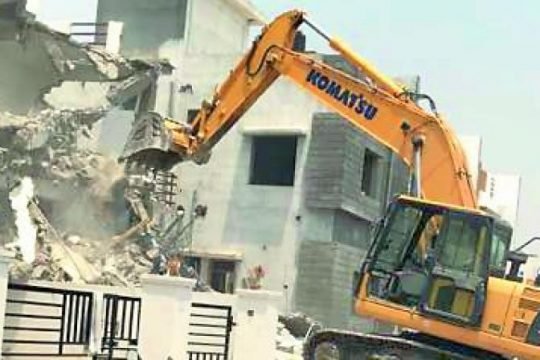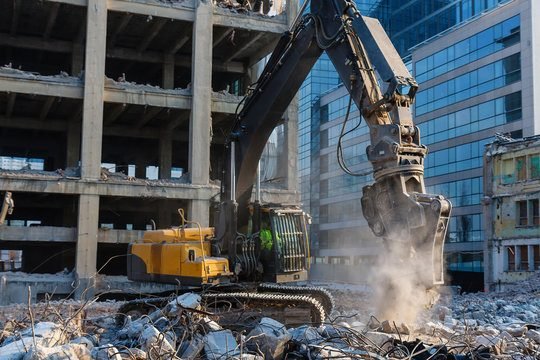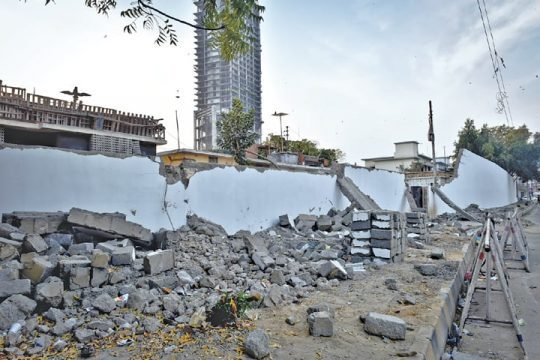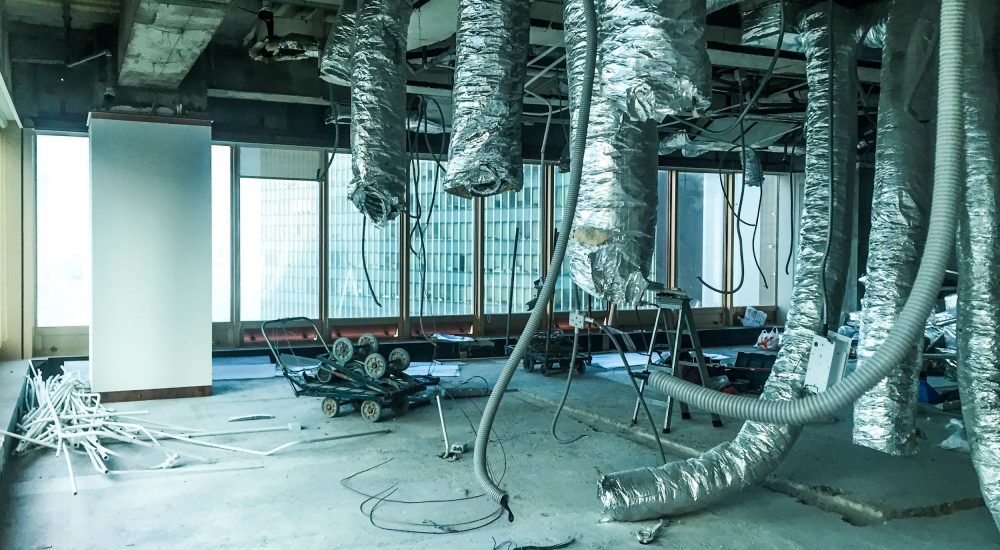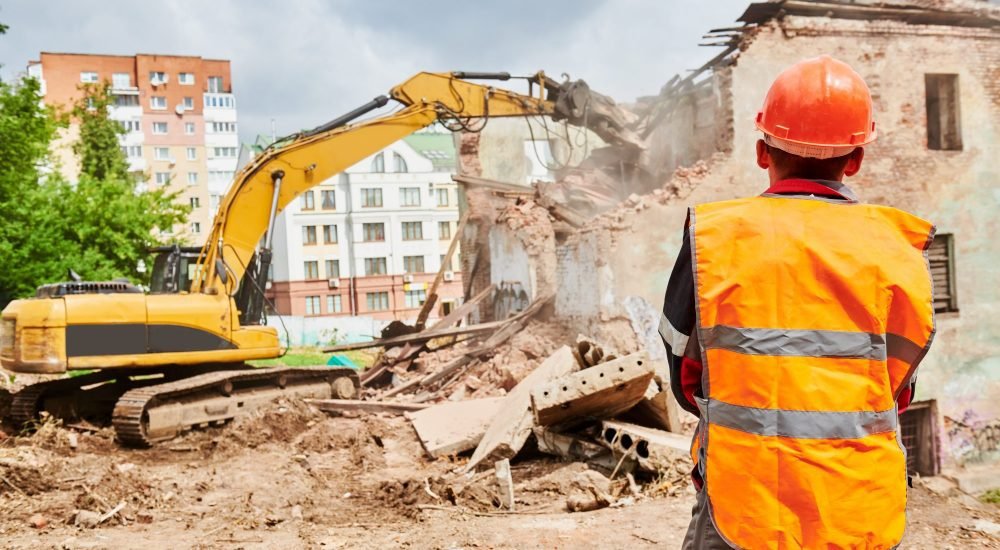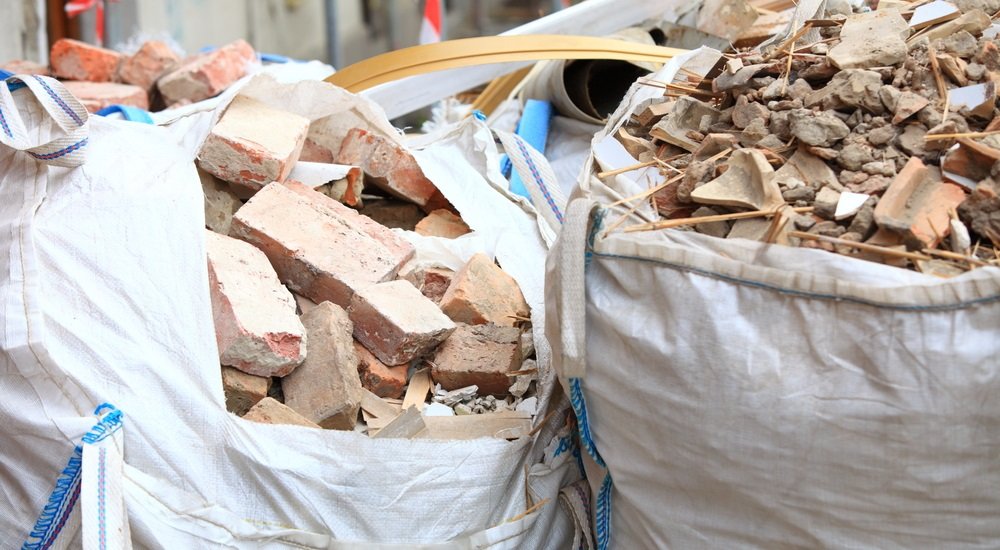Demolition Contractor in Dubai-Demolition plays a crucial role in the construction industry by preparing sites for new developments and ensuring safety. It is essential for clearing outdated or unsafe structures, making way for modern buildings that meet current standards. Demolition is particularly relevant in urban areas where space is limited and land needs to be optimized for high-density projects. It also supports infrastructure upgrades by replacing aging bridges, roads, and tunnels with safer, more efficient alternatives.
This process is necessary to remove hazardous materials, such as asbestos, and to comply with environmental and safety regulations. Demolition helps revitalize communities by clearing dilapidated buildings, enabling urban renewal, and creating space for sustainable developments. Additionally, it facilitates selective removal during renovations, preserving valuable architectural elements while updating structures to meet modern needs.
Through recycling and material recovery, demolition contributes to sustainable construction practices, minimizing waste and promoting eco-friendly solutions. Its role in disaster response and recovery, such as dismantling unsafe buildings after natural disasters, further highlights its importance. Without demolition, progress in construction, urban planning, and infrastructure development would be significantly hindered.
Demolition Contractor in Dubai Demolition Contractor in Dubai Demolition Contractor in Dubai Demolition Contractor in Dubai Demolition Contractor in Dubai Demolition Contractor in Dubai Demolition Contractor in Dubai Demolition Contractor in Dubai Demolition Contractor in Dubai Demolition Contractor in Dubai Demolition Contractor in Dubai Demolition Contractor in Dubai Demolition Contractor in Dubai Demolition Contractor in Dubai Demolition Contractor in Dubai Demolition Contractor in Dubai Demolition Contractor in Dubai Demolition Contractor in Dubai Demolition Contractor in Dubai Demolition Contractor in Dubai Demolition Contractor in Dubai Demolition Contractor in Dubai Demolition Contractor in Dubai Demolition Contractor in Dubai Demolition Contractor in Dubai Demolition Contractor in Dubai Demolition Contractor in Dubai Demolition Contractor in Dubai Demolition Contractor in Dubai Demolition Contractor in Dubai Demolition Contractor in Dubai Demolition Contractor in Dubai Demolition Contractor in Dubai Demolition Contractor in Dubai Demolition Contractor in Dubai Demolition Contractor in Dubai Demolition Contractor in Dubai Demolition Contractor in Dubai Demolition Contractor in Dubai Demolition Contractor in Dubai Demolition Contractor in Dubai Demolition Contractor in Dubai Demolition Contractor in Dubai Demolition Contractor in Dubai Demolition Contractor in Dubai
Demolition holds significant importance in urban engineering (UE) by laying the groundwork for modern infrastructure, sustainable development, and urban renewal. It plays a pivotal role in transforming outdated, unsafe, or inefficient structures into spaces that meet the growing demands of urban populations. By clearing old buildings, it ensures the safe and efficient use of limited urban land, enabling the construction of high-density residential, commercial, and industrial projects essential for urban growth.
In urban infrastructure, demolition facilitates the removal of aging bridges, tunnels, and other public utilities that no longer meet safety or capacity standards. This is critical for upgrading transportation networks, utilities, and public services to support expanding cities. Moreover, controlled demolition helps manage hazardous materials and contaminated sites, ensuring public safety and compliance with environmental regulations.
Demolition also supports sustainable urban engineering practices through the recycling and reuse of materials, reducing waste, and conserving resources. It enables selective removal, preserving historically or architecturally significant elements while allowing for modernization. In disaster management, demolition is vital for removing damaged or unstable structures to prevent further harm and enable rapid reconstruction.
By ensuring safe, sustainable, and efficient urban transformation, demolition is indispensable to the progress of urban engineering and the development of resilient, modern cities.
Demolition is highly relevant in urban development and construction due to its role in enabling progress, safety, and sustainability. It is essential for clearing old, damaged, or inefficient structures, making way for modern buildings and infrastructure that meet current needs and regulations. In urban areas, where land is limited, demolition helps optimize space, allowing for high-density projects and more effective land use.
In infrastructure development, demolition ensures that outdated bridges, roads, and tunnels are replaced with safer, more efficient alternatives. It also facilitates the removal of hazardous materials, like asbestos or contaminated soil, protecting public health and the environment. Demolition is crucial in urban renewal, revitalizing communities by transforming abandoned or unsafe buildings into spaces that enhance livability and economic growth.
Through material recycling and sustainable practices, demolition supports eco-friendly construction and reduces waste. It also plays a critical role in disaster management, removing unsafe structures after natural calamities to pave the way for rebuilding. Demolition’s relevance lies in its ability to drive urban transformation, ensuring cities remain safe, functional, and adaptive to evolving needs.
Demolition plays a central role in urban development, ensuring that outdated infrastructure and buildings are safely removed to make way for safer, more functional, and environmentally responsible alternatives. Here’s a deeper explanation of its relevance and impact in various areas:
Infrastructure Improvement
As cities grow and evolve, older infrastructure such as bridges, roads, and tunnels may become unsafe or inadequate for current needs. Demolition allows for the removal of these outdated structures, making room for newer, safer, and more efficient ones. This is especially important for transportation systems, where aging infrastructure can present serious safety risks, limit capacity, and hinder progress. By removing old bridges, roads, and tunnels, demolition helps pave the way for modern infrastructure that better meets the demands of urbanization, improving traffic flow, reducing accidents, and enhancing overall mobility.
Hazardous Material Removal
In many demolition projects, especially those involving older buildings or industrial sites, hazardous materials like asbestos, lead, or contaminated soil may be present. Demolition facilitates the removal and safe disposal of these dangerous materials, which are a threat to both public health and the environment. Asbestos, for example, can cause severe respiratory issues and diseases such as lung cancer if inhaled, and lead exposure can harm both children and adults. By removing these hazards before new construction begins, demolition helps ensure the safety of workers, residents, and the wider community, complying with environmental regulations that aim to minimize pollution and exposure.
Urban Renewal and Community Revitalization
Demolition is essential in urban renewal projects, where it transforms abandoned or dilapidated buildings into new, usable spaces. In many cities, especially those with older industrial or residential zones, buildings may be left vacant or fall into disrepair, leading to blight, decreased property values, and safety concerns. Through demolition, these sites are cleared, making room for new residential, commercial, or public spaces that revitalize neighborhoods and boost economic growth. Replacing old, unsafe buildings with modern developments also improves the quality of life for residents, providing better housing options, amenities, and public services.
Environmental Sustainability
Demolition contributes significantly to sustainability by supporting the recycling and repurposing of building materials. When a building is demolished, materials like steel, wood, concrete, and glass can often be salvaged and reused, reducing the need for new raw materials and lessening the environmental impact of construction. Recycling materials not only reduces waste but also conserves resources, lowering the overall carbon footprint of the construction industry. Eco-friendly demolition practices, such as selective deconstruction, allow for a more sustainable approach to site preparation, where valuable materials are carefully extracted and reused rather than being sent to landfills.
Disaster Management and Recovery
In the aftermath of natural disasters like earthquakes, floods, or hurricanes, demolition plays a critical role in disaster response. After such events, buildings can become structurally compromised or unsafe, posing further risks to public safety. Demolition helps remove these dangerous structures, clearing the way for rebuilding efforts to begin. This is particularly important in areas where emergency services need to access affected zones quickly, or where damage may make buildings uninhabitable or dangerous for recovery workers and residents. Demolition in these cases ensures that reconstruction can proceed in a safer, more organized manner, contributing to a more resilient community in the long term.
Driving Urban Transformation
Demolition’s relevance is ultimately tied to its role in urban transformation. As cities grow and change, old, inefficient, or unsafe buildings and infrastructure need to be removed to make room for new developments that are better suited to modern needs. Whether it’s upgrading transportation networks, redeveloping dilapidated urban areas, or replacing unsafe housing with more sustainable and energy-efficient buildings, demolition is the first step in creating cities that are safer, more functional, and adaptive to future growth. By clearing the way for new developments, demolition drives the evolution of urban environments, enabling cities to become more livable, productive, and resilient in the face of changing demands.
In conclusion, demolition is a critical process that supports safer, more efficient, and sustainable urban development. Whether it’s improving infrastructure, removing hazards, revitalizing communities, or contributing to environmental sustainability, demolition plays a key role in shaping modern cities that can thrive in a constantly changing world.

